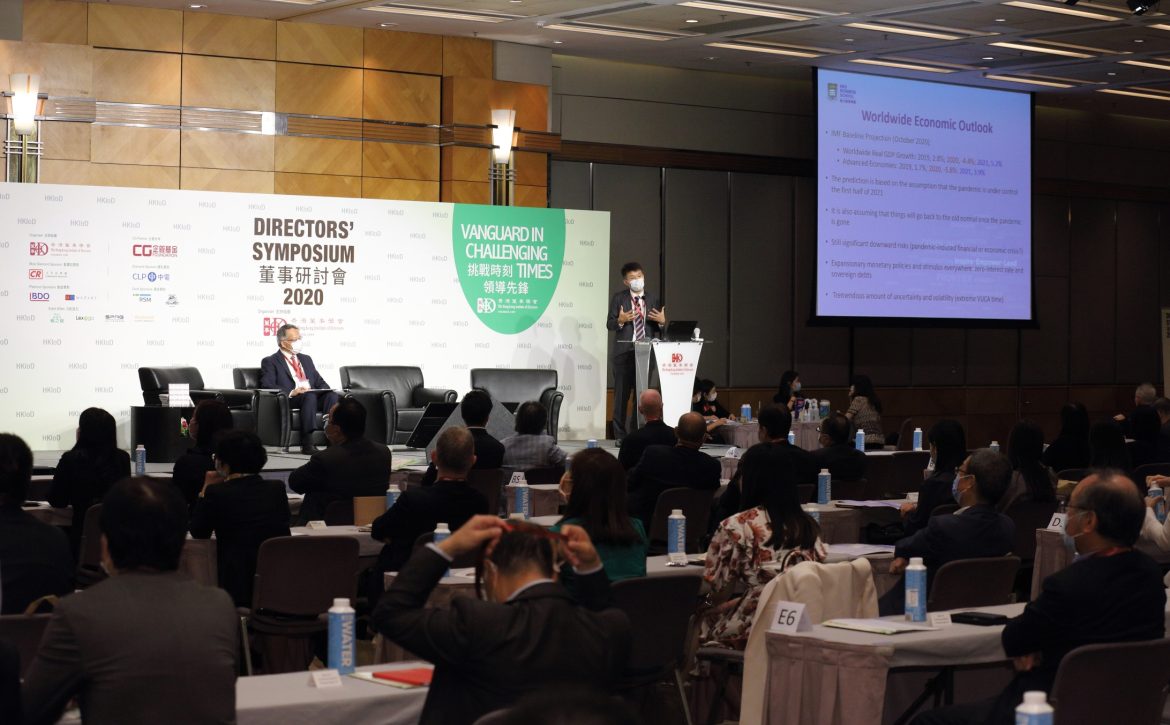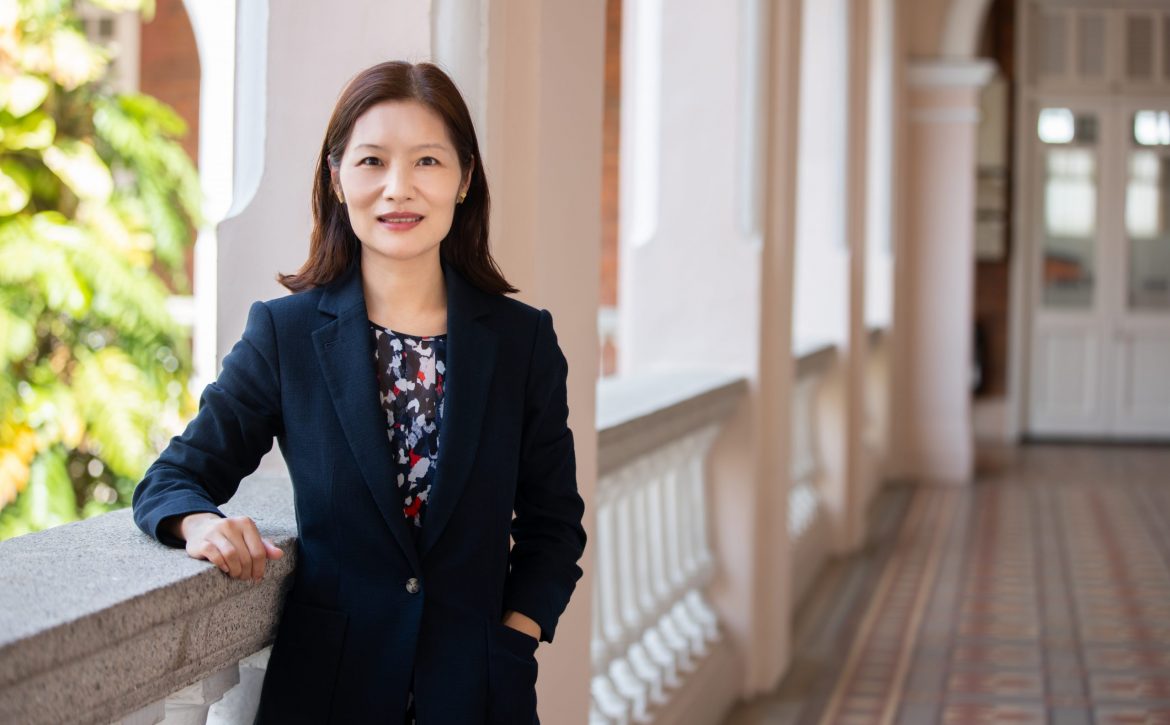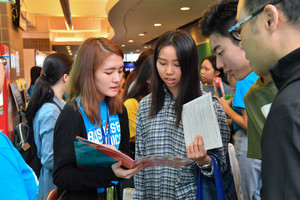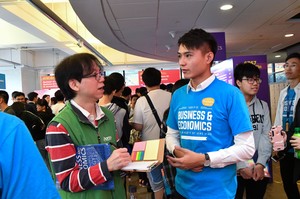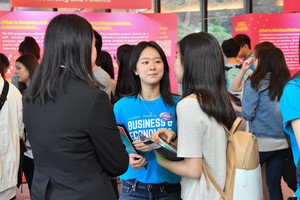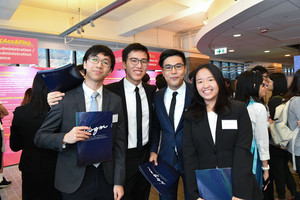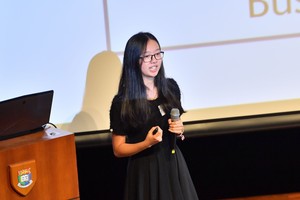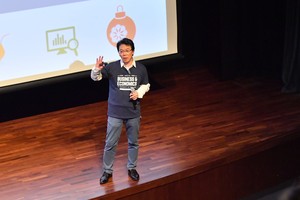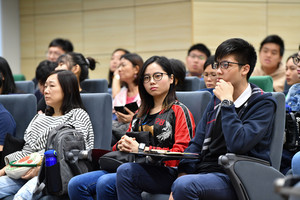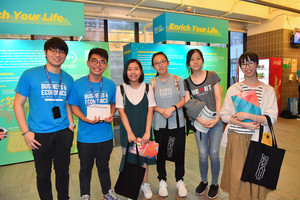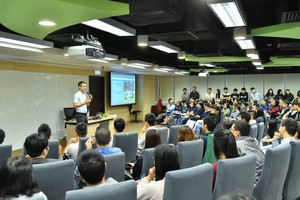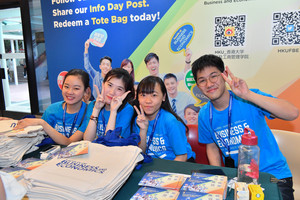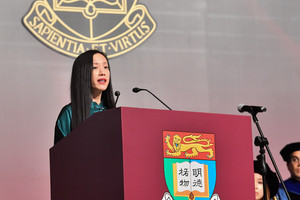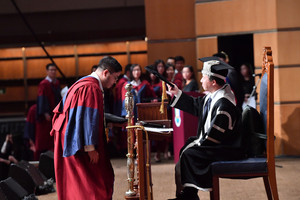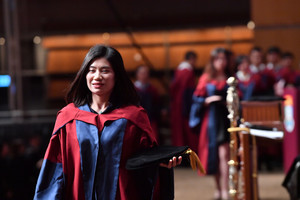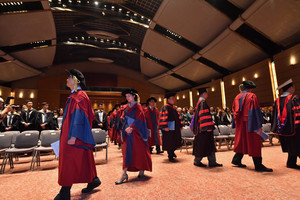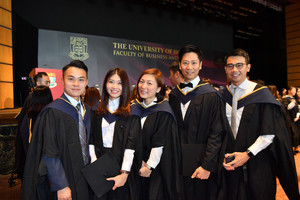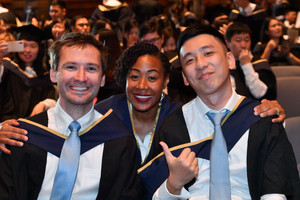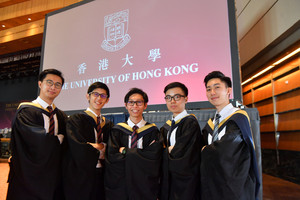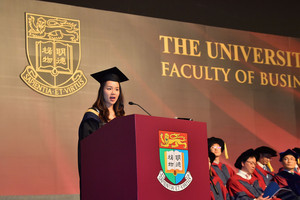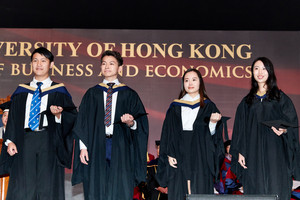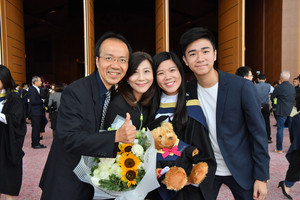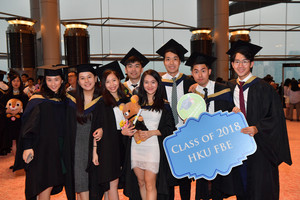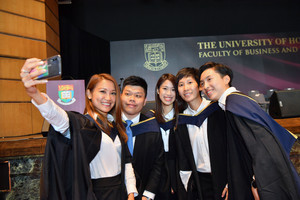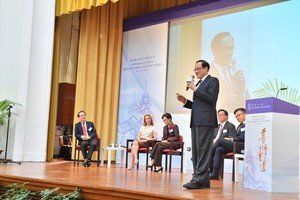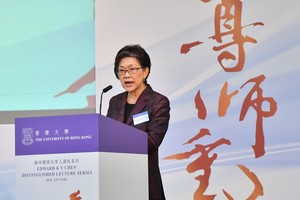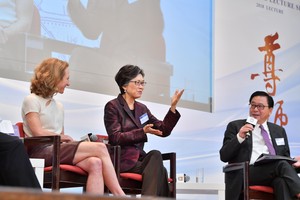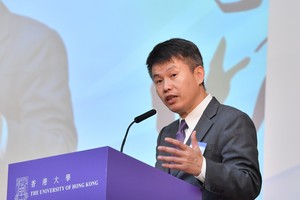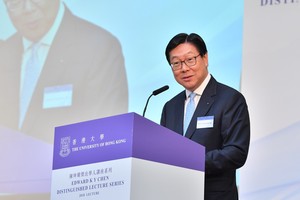From conference room to classroom
As one of the three winners of the well-recognised University Grants Committee (UGC) Teaching Award this year, Mr. David Lee, Principal Lecturer of HKU Business School, has received a number of awards for teaching excellence and innovation during his five years in HKU. Prior to entering the Education sector, Mr. Lee was having a promising career in the finance industry. The birth of his daughter however, was a turning point in life. “When I was working in the finance industry, I had to travel frequently, separated from my children at least one week per month. I thought if this continues, by the time my daughter is 20 I’ll have missed 5 years of her life and it didn’t seem worth it.” Based on Mr. Lee’s penchant for making a meaningful impact to the world, he eventually moved forward from generating value for shareholders, to nurturing leaders of tomorrow.
“New Normal” in Teaching
Mr. Lee observes that a lot of new technologies have emerged throughout the pandemic. For instance, virtual reality technologies have enabled students to attend field trips without physically traveling. But as the transfer of business knowledge requires minimal physical interaction, Mr. Lee believes that technology is not the most important component to business schools. On the other hand, as long as a teacher can engage students effectively, even the most traditional teaching tools can still deliver excellent classroom experiences.
However, Mr. Lee does believe that a new teaching trend is incubating. With extensive experience teaching online even before the current pandemic, Mr. Lee believes that the pandemic will have students cherish classroom learning more. However, as online learning has proven its value throughout this pandemic, even when an effective vaccine for the coronavirus is made, online learning components will permanently stay in our education system. Only time would tell how the balance between online and classroom learning changes.
Grit trumps wit
During the interview, we were captivated by Mr. Lee’s memorable collection of thank-you cards written by students. “Receiving thank you cards and emails from former students sharing their updates are really gratifying to me as an educator.” Teaching in HKU for 5 years, Mr. Lee praised the good potential of HKU Students, yet the most memorable students are not those with the highest grades, but those that managed to overcome adversity.
Mr. Lee believes that it takes short-term discipline and good time management to attain good grades in a course, but it takes grit, perpetual perseverance, and an indomitable will to deal with life crisises, learning his students’ success stories of surviving adversity has become an impetus for Mr. Lee to develop his pedagogy for the betterment of students.
An epic journey upcoming
The remarkable honour from the UGC does not slow down Mr. Lee’s pace in his teaching journey. Instead, Mr. Lee is dedicated to create new initiatives for further advancing the knowledge of students and enriching their learning experience. He plans to develop a digital library over the next 3 years that houses a variety of resources related ethics and leadership. This will hopefully become a platform for Asian leaders to explore ideas and solutions to their business challenges, and also a business case bank for business education. Mr. Lee observes that existing business case studies on ethics and leadership are mostly Western-oriented and developing such resources based on Asia experiences is important. Attempting to create a new learning category within the academic circle is ambitious, but Mr. Lee looks to the future with vigor and optimism.






